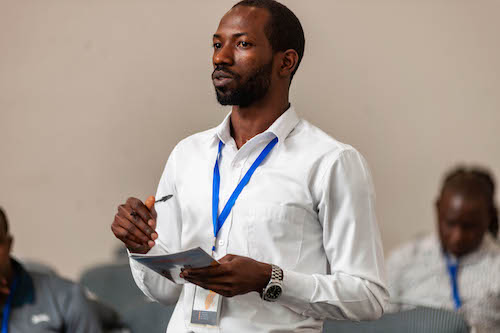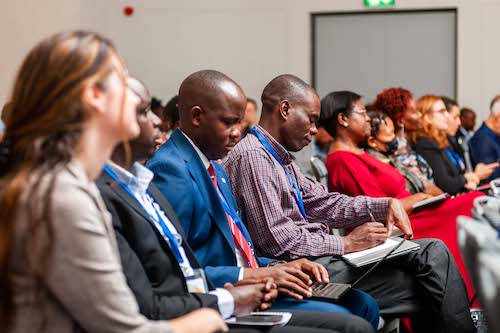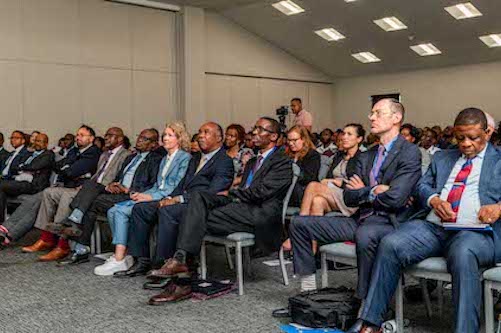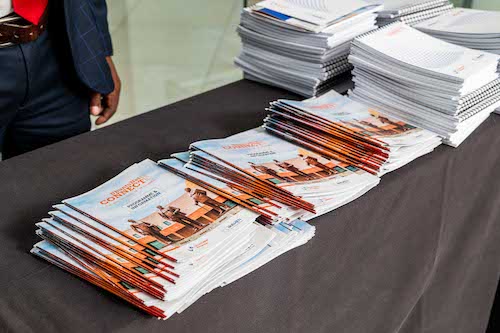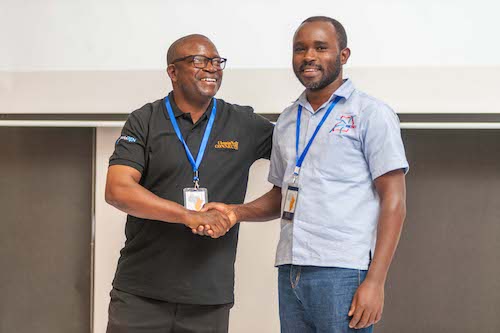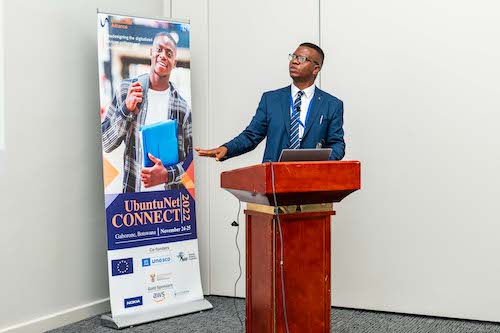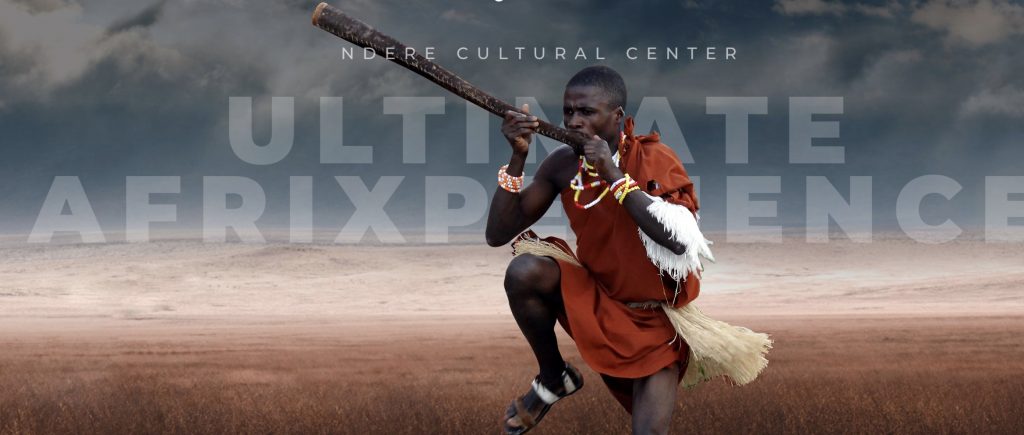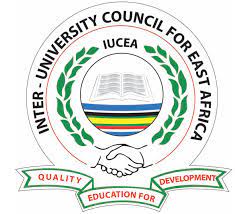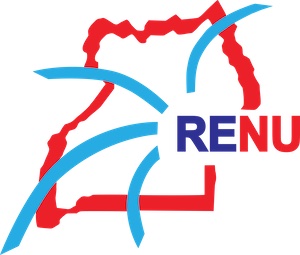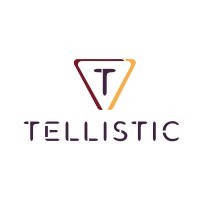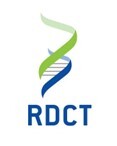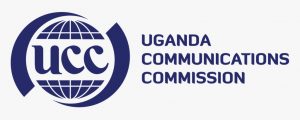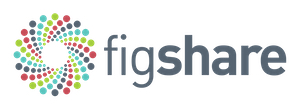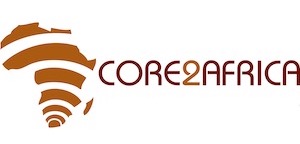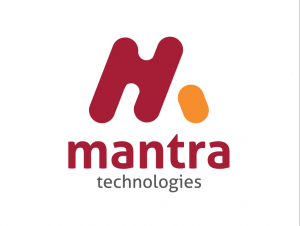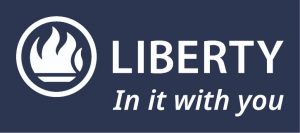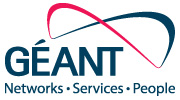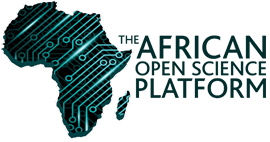
Kampala, Uganda, October 26-27
Theme: Fostering Creative and Innovative Research and Education Communities
As the regional research and education network for East and Southern Africa, UbuntuNet Alliance is uniquely positioned to support digital and data innovations that can expedite the impact of academic research. The main theme for this year will be centered on how to identify challenges and opportunities in the community and how to translate them into academic research as well as practices, and techniques that lead to creative and innovative solutions
The UbuntuNet Connect 2023 Conference theme looks broadly at the issues surrounding fostering creative and innovative research and education communities in Africa. Keynote speeches, panel discussions, and paper presentations are invited that address topics and anchor discussions on where we have come from, where we are today, where we should be heading, and the challenges and opportunities we face along the way.
Topics
- Diversity and Inclusion – Explores best practices for promoting diversity and inclusion in research and education, how to create an inclusive culture, and the benefits of diverse perspectives and experiences.
- Creativity and Innovation Programmes – What creativity and innovation initiatives are taking place in the research and education community? What are some of the success stories?
- Research to Commercialization – Knowledge transfer: What is it? Why is it important? How can RENs facilitate the transfer of academic knowledge to the industry? How can universities collaborate to bridge the gap between research and practice? How do universities safeguard their intellectual property? This sub-theme will look at best practices, case studies and examples of university research that have generated recent cutting-edge solutions that have benefitted the community.
- Value-added services – What new services are being developed? Any significant upgrades to the current ones? Includes examples and deployment applications of learning management systems, cloud services, identity federation.
- Connectivity services – Includes examples and deployment applications of Open Networking, eduroam on the go, enhancing connectivity to Institutions in underserved areas.
- Cybersecurity – Due to the size and complexity of inter-connectivity, cyber-attacks can have a catastrophic impact on network and service availability. What new security measures are being researched or have recently been employed to secure R&E networks? Success stories or new techniques to be shared with the community.
Who Should Attend/Why should you attend?
- College and University ICT Directors (or equivalent) and Librarians – Opportunity to present on the extent of digitalisation in your institution, learn from others as well as gather information and hold discussions on challenges faced, potential digital solutions, and opportunities for collaboration.
- Researchers, academics, students – Share how you are using digital technologies and the UbuntuNet Alliance/NREN research and education network to support your research, teaching and learning as well as on future directions. Provides opportunities to learn and form new collaborations across the continent.
- Government officers (related to ICT and Education) – Expound on your government’s current and future policies, actions, and plans in stimulating the redesign of digitalised African universities. Gives you an opportunity to learn from what is happening in other countries.
- Private/Industry – Present case studies on the emerging digital technologies in support of the digitalised African University. You have the opportunity to learn and discuss about the challenges universities face, present solutions, seek potential business.
- NREN Community – opportunity to listen to the voice of the customer and learn areas where the services offered by NRENs can be catalyst of and anchor of the redesigned digital college and university.
Timelines
- March 6, 2023 – CLOSED: Call for Paper Presentations and Panel Proposals
- July 1 – Opening Early Bird Registration
- August 7, 2023 – Paper presentation and Panel Proposal Notification
- August 31, 2023 – CLOSED: Early Bird Registration
- September 30, 2023 – Close Regular Registration
- October 26-27 – UbuntuNet-Connect 2023
Key Links
Sponsorship
UbuntuNet-Connect 2023 presents a rare opportunity for companies to meet Africa’s research and education networking community and market their products and services. This is especially important to organisations and companies with a national, regional or global footprint.
Reasons to Sponsor
- Thought Leadership – Position your products, services, and executives as key players in the research and education community.
- Networking – Gain face-to-face access and directly contact typically hard to reach decision-makers and education community.
- Branding – The sponsorship will give your company or organisation visibility that it needs in the African research and education community.
Venue
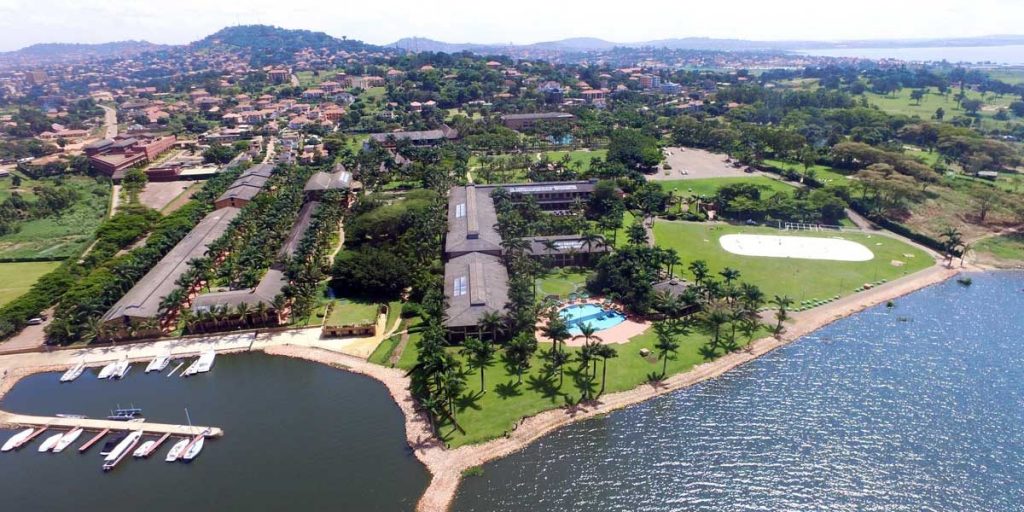
Registration
Registration has closed.
Info-Pack
To ensure that you have a smooth experience at the UbuntuNet Connect 2023, we have compiled information to help you understand what to expect while in the Uganda.
KEYNOTE SPEAKERS

Dr. Aminah Zawedde,
Permanent Secretary,
Ministry of ICT and National Guidance,
UGANDA

Erik Huizer
CEO, GÉANT
THE NETHERLANDS
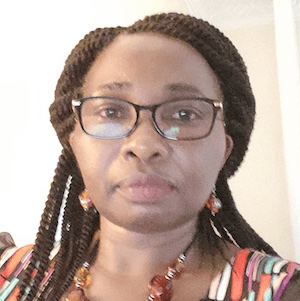
Prof. Damiannah M Kieti Manono
Deputy Vice-Chancellor, Finance Planning and Development
KCA University
KENYA
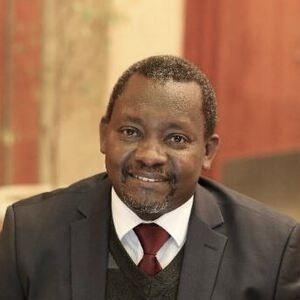
Prof Gaspard Banyankimbona
Executive Secretary
Inter-University Council of East Africa
UGANDA
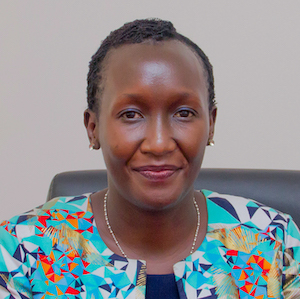
Eng. Irene Kaggwa Sewankambo
Executive Director,
Uganda Communications Commission
PRE-CONFERENCE PROGRAMME (BY INVITATION ONLY)
23 - 25 October
Room: Sapphire
The women hackathon seeks to addresses the innovation gap and gender balance in software development on the African continent.
Aims, Theme and Key Focus Areas
Competitively selected teams of women developers from the Ubuntunet Alliance region of East and Southern Africa shall participate in the hackathon under the theme: Innovate for Research and Education. Key Focus Areas for projects are:
- Innovations for 21st century education: All over Africa, there is a need to improve the way learning happens both in and out of a school, especially in the post pandemic era. Moreover, the reliance of education on technology has continued to increase and awareness of such technologies is key.
- Innovations for improving uptake of research and its outputs: This involves innovations, which help in stakeholders becoming aware of and accessing research outputs to improve policies and practice. Research uptake involves dissemination of research findings, Capacity development to understand research outputs, increased Influence (social influence), Incentives and creation of enabling environments among others.
- Innovations for improved collaboration: Innovations, which bring together multiple stakeholders in research projects. Collaboration technologies include those which assess the diversity of teams (experiences, roles etc), help in the mobilisation of teams and assess performance and contribution of teams and individuals in order to provide impactful research.
The five teams selected through a highly competitive process are:
NovaNex: Empowering Collaborative Learning and Knowledge Exchange, Jane Jackline Waithira, Rose Caleno, and Beryl Kanali, KENYA.
Research Aggregator Web Application. Grace Gausi, Joyce Mtawali, and Olivia Mkandawire. MALAWI.
Digitalizing the Education System for Better Effectiveness and Efficiency. Nabunje Diana Lubega, Joan Namakula, and Linda Arwa. UGANDA.
CollabScholar: Enhancing Research and Education Through Digital Collaboration. Chansa Kashell Mwenya, Foster Mulenga, and Faith Chulu. ZAMBIA
KUSHA: Empowering Researchers through social media for Knowledge Dissemination. Trish Ngarize, Blessing Gavaza, and Ashley Masvodza. ZIMBABWE.
Teams shall present their applications during the closing plenary of the conference.
24 October
Room: Regal Room
[Invitees from EU, GEANT, UA, WACREN, and partners. Closed Meeting]
25 October
CONFERENCE PROGRAMME
Room: Regal Room
[Closed training for librarians. By invitation only.]
The training covers relevant aspects of Open Access and Open Data with a hands-on exercise on how to build institutional repositories.
Session | Topic |
Session I | Introducing Open Science and the FAIR principles:
|
Session II | Comparing scholarly repository systems:
|
Session III | Hands-on Practical (Please bring a laptop):
|
Room: Emerald
[Closed Meeting for UA NREN CEOs]
Room: Meera
[Closed Meeting by Invitation.]
Organised by Inter-University Council for East Africa (IUCEA) and UbuntuNet Alliance for NREN Stakeholders from East Africa.
Room: Emerald Hall
[CLOSED MEETING BY INVITATION ONLY]
26 October
Room: Victoria Ball Room
Chairperson: Prof Madara Ogot, CEO UbuntuNet Alliance
- Welcome remarks:
- Prof Madara Ogot, UbuntuNet Alliance CEO (5 min)
- Nicholas Mbonimpa, RENU CEO (5 min)
- Rev. Prof John Kitayimbwa, RENU Chairperson (5 min)
- Dr Julianne Sansa-Otim, Ag, UbuntuNet Alliance Chairperson (5 min)
- Mr Lennart Deridder, Uganda Team Leader for EU Global Gateway (5 min)
- Dr. Aminah Zawedde, PS Ministry of ICT and National Guidance, Guest of Honor Speech and Official Opening of Conference (15 min)
 | Dr. Aminah Zawedde is the Permanent Secretary of the Ministry of ICT and National Guidance. She is an experienced IT professional passionate about embracing digital transformation to improve business models, service delivery and transform people’s lives. She provides strategic and technical guidance on how various sectors can leverage innovation and digital solutions to solve their problems within academia, government and the private sector. To this end, she has played a big role in strengthening the linkages between government, the private sector, academia and development partners. My areas of specialty are Business Process Re-engineering, Systems integration, E-Governance, and Information Security. Dr. Zawedde serves on the Board of DFCU Limited. She holds a Ph.D. in Software Engineering from the Eindhoven University of Technology, a Postgraduate Diploma in Educational Technology from the University of Cape Town, and a Master of Computer Science, Information Systems and a Bachelor of Science, Statistics from Makerere University. |
- Keynote 1-1: Erik Huizer, CEO GÉANT (20 min)
 | Erik Huizer has held various significant roles in the fields of education and research networking, Internet standardization, and Internet governance for over 30 years. He is currently the CEO of GÉANT, Europe’s primary collaboration for e-infrastructure and services in research and education, since July 2017. Before this, he served as the Chief Technology Officer (CTO) at SURFnet, the Dutch national academic and research network. Between 2008 and 2012, he was the Managing Director for the Information Sciences and Space Technology division at TNO (The Netherlands organization for applied scientific research). During his career, he was actively involved in various Internet-related organizations and initiatives, including chairing Dutch IPv6 Taskforce from 2002 to 2017, which promoted IPv6 adoption in the Netherlands. His contributions to the Internet earned him a place in the Internet Hall of Fame in 2014, and in 2015, he was recognized as Dutch ICT Personality of the Year. Erik has also been a teacher at workshops on Internet policy and technology in developing countries and is a TEDx speaker. |
- Keynote 1-2: Prof. Gaspard Banyankimbona, “The Role of IUCEA in Digitalization Journeys of Higher Learning Institutions in the EAC.” Executive Secretary, Inter-University Council of East Africa (IUCEA) (20 min)
 | Prof. Banyankimbona is the 5th Executive Secretary of the Inter-University Council for East Africa (IUCEA) since April 2021. He has more than a decade of uninterrupted hands-on higher education management experience by holding major leadership positions from head of department, Vice-Chancellor of the University of Burundi, Permanent Secretary and later Minister of Higher Education and Scientific Research, Burundi. He was involved in national and regional higher education reforms and policy development processes. Prof Banyankimbona is an Associate Professor of Biology at the University of Burundi. |
On the terrace outside Victoria Ball Room (Main plenary hall)
Room: Regal
Chairperson: Nicholas Mbonimpa, RENU
- Bridging the Connectivity Gap Using Unconventional Last-Mile Solutions Nicholas Brian Anya, RENU- UGANDA.
ABSTRACT: National Research and Education Networks [NRENs] are expected to connect all R&E [Research & Education] community sites and institutions regardless of physical location or infrastructure presence. This expectation necessitates that the NREN think outside the box to create new and unconventional last-mile solutions.
In Uganda, the Research and Education Network for Uganda [RENU] was able to connect 144 Health Centers in Central and Western Uganda’s rural areas. These health centers perform research to tackle the high HIV prevalence in those areas, making them an important resource for the country and the R&E community. Quality Internet connectivity is required for a variety of research operations at these facilities, including HIV screening, patient vitals tracking and analysis, dose control, and patient enrolment.
Unfortunately, these rural areas lack optical fiber infrastructure, and their rugged terrain makes line-of-sight microwave point-to-point connections with cellular towers on the mainland impossible. Their distance from the mainland also makes cellular signals undetectable by standard mobile devices. Furthermore, satellite networks have high latency values, which have a negative impact on the performance of low-latency research applications.
In response to this challenge, RENU explored various innovative solutions for last-mile using LTE connectivity and the most promising solution identified was the deployment of LDF (Lite Dish Feed) devices. These outdoor LTE devices were designed to be compatible with satellite offset dish antennas, acting as reflectors to significantly amplify LTE signals and serve very remote areas. RENU successfully connected 12 remote [on the Kalangala Islands] sites via last-mile LTE using this technology, even in regions where traditional LTE receivers failed to identify any signal due to the received signal being very faint and below their sensitivity values. RENU also effectively crossed the connectivity gap in distant and unconnected health institutions, particularly in the HIV-prevalent Kalangala Islands, using this unconventional approach. The higher network performance made possible by LDF devices has improved research capacities and healthcare services for the local population. Our presentation will show the effectiveness of last-mile LTE solutions in tackling connectivity difficulties in underprivileged areas and how this connectivity has improved Uganda’s overall growth in healthcare and research.Download Presentation
- Measuring End-User Experience in Network Research and Education Networks: Leveraging the Google ISP Tool, Sherinah Nakazibwe, RENU- UGANDA.
ABSTRACT: Measuring the end-user experience in network research and education networks (NRENs) presents a complex task, considering the numerous factors involved along the network path, from the source service server to the end-user device. Traditional monitoring tools utilized by many emerging NRENs primarily focus on assessing end-user experience through metrics such as service latency and bandwidth utilization. Unfortunately, these tools often overlook critical factors such as institutional access networks (both wireless and cabled), end-user devices such as mobile phones and laptops, and the path from the service server to the NREN network.
To tackle this challenge, we discovered the Google ISP tool to be an immensely helpful resource. By employing this tool, we have successfully identified poorly performing institutions by analyzing three key measurement metrics: retransmit rate, roundtrip time, and goodput. Notably, Google-based traffic constitutes a significant portion, accounting for up to 60% of the overall RENU traffic, with Google cache traffic alone representing over 70% of the Google-based traffic.
Among the three metrics, the retransmit rate has emerged as the most reliable indicator of performance. Institutions consistently exhibiting a retransmit rate exceeding 50% have been identified as poor performers, prompting closer monitoring to uncover underlying causes such as bandwidth constraints, hardware limitations, or misconfigurations.
In our presentation, we will present our observations regarding the effectiveness of the Google ISP tool in accurately measuring institutional performance using its key metrics. Our work aims to facilitate prompt troubleshooting and enable NRENs to gain valuable insights into network performance. By leveraging this tool, NRENs can proactively address issues that negatively impact the end-user experience, ensuring a more reliable and efficient network infrastructure.
Our findings highlight the significance of considering factors beyond backbone network monitoring in assessing end-user experience within NRENs. The Google ISP tool serves as a valuable resource for NRENs to understand and improve institutional performance. By employing this tool, NRENs can optimize their networks, enhance end-user satisfaction, and foster a more seamless research and education experience. - RARE Router: Use Cases and Opportunities for Research and Education Networks, Wilson Wasswa, UbuntuNet Alliance, MALAWI.
ABSTRACT: One of the major challenges faced by NRENs is the high cost of backbone routers, which can strain their limited budgets. To address this challenge, the RARE (Router for Academia Research and Education) project, led by GEANT utilises FreeRouter, an open-source routing software that is flexible, scalable, and customisable. This allows NRENs to install the software on a variety of hardware platforms that are more affordable than proprietary routers. The use of open-source software and virtualised network functions has the potential to revolutionise the deployment and operation of scalable packet-switched networks, particularly in research and education communities.
This paper provides a virtual testbed evaluation of the RARE routing paradigm, focusing on its support for key features used in a typical IP/MPLS backbone. It also explores recent developments, challenges, and prospective directions of RARE, offering valuable insights for network architects and engineers in the UbuntuNet Alliance region and beyond.Download Presentation
Room: Majestic
Chair: Miriam Chahuruva, ZIMREN
- Results of creative and innovative research: The success story of PataIntel, an innovative research-based E-learning platform from Tanzania, Pamela Chogo, Nelson Mandela African Institute of Science and Technology – TANZANIA.
ABSTRACT: The translation of research work to innovative commercial solution is seen to be a challenge for many re- searchers in Africa, Tanzania included. Majority of scholars and researchers conduct academic studies that give recommendations but do not move towards product and service development. The situation has been different with PataIntel. A research-based Artificial Intelligence powered E-learning platform developed by researchers from Tanzania. Though still in prototype development, the idea for the platform development was encouraged by the results of the studies conducted in 2020, 2021 and 2022. The study conducted in 2020 was titled “An Evaluation of Higher Education Students Online Learning Experience”. The results of this study showed the presence of positive attitude towards online learning. Furthermore, the study conducted and presented at the UbuntuNet Connect 2021 that was titled “From lock down to blended learning: Opening opportunities for remote students. A case of the Institute of Accountancy Arusha” showed that people are ready to learn online and despite available technical challenges the internet coverage in Tanzania is improving. In addition, in 2022 another study was conducted and presented at the UbuntuNet Connect 2022. This was titled “Tanzanian digital technologies in teaching, learning and research process: Availability and Coverage”. Like the other studies this showed people are ready to learn online but there are very few locally made platforms. Being informed by these studies and with the addition of an ongoing PhD research on the application of Artificial Intelligence in Agriculture knowledge sharing, A team of researchers and experts joined hands and started developing PataIntel. An AI powered E-learning platform. The developed platform is for commercial purposes expected to sell locally developed learning contents. Currently, a prototype is being developed with support from entrepreneurship and innovation initiatives at the Nelson Mandela African Institution of Science and Technology where the PhD research is ongoing. Through the institution, the innovators have undergone entrepreneurship and innovation trainings and boot camps. They also got the opportunity of being incubated by Sahara ventures under the Innoversity project funded by the French Embassy in Tanzania. With this support the innovators have been able to register a company, register the domain name and they are currently developing the Platform and contents.
Download Presentation.
- Teleproctoring as a model for learning surgical skills in rural Uganda, Anna Kalumuna, Icahn School of Medicine at Mount Sinai, UNITED STATES.
ABSTRACT:
With high-speed connectivity services and innovative technologies, remote teleproctoring can enhance a surgeon’s skill set and provide patients with improved surgical care. Mount Sinai Department of Surgery in New York collaborated with local stakeholders in rural Uganda to construct the Kyabirwa Surgical Center (KSC). The goal is to create a replicable, self-sustaining surgical system, as well as develop a new model for sharing surgical knowledge in low-resource communities around the world. Ugandan and New York surgeons collaborate in real-time using a combination of innovative technologies for supervised teleproctoring, allowing Ugandan surgeons to acquire new sets of surgical skills.
Remote teleproctoring in rural Uganda is predicated on enhanced connectivity services. To ensure optimum connectivity, a 7-mile long underground fiber optic cable link was installed to provide stable high-speed internet. A solar powered battery system was also used to provide continuous power. These connectivity services created a modern ambulatory surgical center in a remote setting. A total of 2979 operations have been per- formed at KSC, and the number of complex operations continues to grow thanks to collaboration through technology.
Surgeons in Uganda with no previous endoscopic experience were oriented to endoscopy via a one week in- person demonstration from an expert US gastroenterologist, followed by continued close supervision remotely using a real-time video and audio feed, enabled by the high-speed internet connection. The proctor in New York is able to see the hands of the surgeon in Uganda alongside a split screen view of the image from the endoscope. The surgeon wears a headset to allow communication with the proctor. The fiber-optic internet enables almost instantaneous communication with minimal lag time. KSC has now completed 586 endoscopies and 263 colonoscopies since opening in 2019. Teleproctoring sessions now focus on training of more advanced therapeutic endoscopic procedures, such as esophageal banding and foreign body removal. A similar process was used for training local surgeons in minimally invasive laparoscopic surgery. A total of 36 laparoscopic procedures have been performed, including 21 appendectomies, 12 cholecystectomies, and 3 fundoplications. For open procedures, where there is no camera feed from a scope, the surgeon in Uganda wears an augmented reality headset that allows the proctor in New York to not only see what the surgeon in Uganda sees, but also to draw annotations that the local surgeon sees as holograms.
This model of surgical knowledge sharing can bring expertise to the most remote areas and have a long- lasting effect on the healthcare of underserved communities. Training physicians remotely will train local doctors in greater numbers than the traditional travel-and-teach model allows. In-person training, especially overseas, is time-consuming and expensive and it provides only short-term training opportunities. Now with these advances in technology, an expert surgeon can remotely proctor surgeons in LMICs without the cost and time-constraint of traveling, effectively being in two places at once. Multiple teachers and students can participate during these sessions, making the knowledge sharing pool even larger. Teleproctoring has opened a new era for remote surgical training that is not only feasible but reproducible.
- Leveraging Science, Technology and Innovation to Foster Creative and Innovative Research and Education Communities, Margaret Muthee, National Commission for Science, Technology and Innovation – KENYA.
ABSTRACT:
The African continent continues to grapple with unprecedented and complex challenges which threaten people’s survival and livelihoods. Amidst these challenges, there are numerous efforts geared towards providing a broad range of sustainable solutions anchored on global and regional commitments which call for partnerships and collaborations to leverage resources available at various levels. The catalytic effect of science, technology and innovation (STI) in driving the global sustainable development agenda to transform livelihoods and foster resilience among communities has widely been acknowledged. This has influenced the development and implementation of STI policies which broadly focus on key areas that seek to bridge the gaps in knowledge creation, uptake and utilization of results generated from research and education communities. The purview of the STI policy and regulatory framework has moved beyond mere regulation and funding research to creating opportunities for harnessing creativity and innovation to generate marketable ideas and products.
Using Kenya’s STI landscape, the paper seeks to demonstrate the approach adopted to enrich the activities of research and education communities in a bid to contribute to the realization of the sustainable, inclusive and transformative development agenda. The engagement between the STI sector and the research and education communities in Kenya is governed by the STI Act of 2013 which seeks to facilitate the promotion, co-ordination and regulation of the progress of STI of the country; assign priority to the development of STI; and entrench STI into the national production system.
A robust institutional framework to support realization of the three objectives has been provided through creation of a three-dimensional establishment comprising the National Commission for Science, Technology and Innovation (NACOSTI), National Research Fund (NRF) and Kenya National Innovation Agency (KeNIA). In this establishment, the prioritization of the areas of focus by the research and education communities is spearheaded by NACOSTI. The prioritized areas guide the funding agency, NRF in developing the research funding mechanism targeting the research and education communities to develop creative and innovative ways of addressing societal needs and meeting the national development agenda. The innovative research outputs in the form of ideas, processes and products with the potential for commercialization are identified by KeNIA for support.
The operationalization of this model is ongoing with both successes and failures recorded, which provide valuable lessons to inform actions being developed and implemented across the continent to enhance STI sec- tor’s contribution in fostering creative and innovative research and education communities. The continued engagement between the three STI institutions with research and education communities has made a significant difference in the way research outputs from academic institutions are valued, protected and utilized to provide tangible solutions to the people. In addition to providing a landscape analysis, the paper will examine the model’s viability, achievements, gaps and recommendations to improve its performance in creating a strong STI ecosystem to catalyze creativity and innovation within research and education communities.
Room: Royal
Chairperson: Caroline Tuhwezeine, RENU
- ‘Playing our Part’ – How African RENs are Contributing to Meeting Global Goals, Effah Amponsah, WACREN- GHANA.
ABSTRACT:
The world is grappling with solutions to numerous global challenges. The quest to overcome these problems is summarised in the 17 United Nations Sustainable Development Goals (SDGs). Governments and organisations of all sizes and geographical footprints are endeavouring to contribute to helping the world achieve the SDGs by 2030.
African Research and Education Networks (RENs) are playing their part in achieving this end and making the world a better place to live. RENs have become global development catalysts, and they create value in several fields, including education, health, agriculture, gender equality, economic growth, climate and innovation.
From providing academic communities with the necessary connectivity to access vital learning material, es- pecially during the COVID-19 pandemic (SDG 4), to empowering females in the science and research fields (SDG 5). From equipping the community with the necessary skills to increase employability (SDG 8) to im- prove the local digital infrastructure focusing on fairness, reliability and inclusivity (SDG 9). From embracing more affordable and scalable mechanisms for climate change-conscious management (SDG 13) to fostering global partnerships (SDG 17). RENs’ support for more inclusive access to digital infrastructures and technolo- gies across the continent spills over to improving students’ learning experience and opportunities in the job market, contributing to crucial research projects, promoting sustainable practices, and enhancing healthcare services.
These are some examples of the impact and value of African RENs in the broader research and education community related to the SDGs. Sad to note that, hitherto, all these concrete contributions were underreported for various reasons; disparate data and lack of a definite, strategic approach to collating and synthesising these data partly accounted for the underreporting.
Through online workshops, face-to-face meetings and online surveys, the three RENs in Africa – UbuntuNet Alliance, WACREN and ASREN (working with GEANT – the pan-European REN, under the EU-funded Africa- Connect3 project) have gathered several concrete evidence of how African RENs are contributing to achieving the SDGs.
This paper highlights the contributions made by African RENs, emphasising Eastern and Southern African NRENs. The paper also sheds light on how NRENs can create more value for themselves by making criti- cal, strategic policy decisions, revamping corporate culture and pursuing SDG-aligned corporate behaviour, projects and activities to help the world to make steady strides towards meeting the SDGs.
The paper highlights the support needed from key stakeholders in research and education in Africa to enable RENs to make more significant contributions to achieving the SDGs.
The paper is expected to give impetus to all national RENs in Africa and worldwide to strive towards making the world a better place to live by taking decisions and pursuing actions that will make them good global corporate citizens.
Download Presentation.
- Beyond Connectivity: Unlocking Africa’s potential through the spirit of Ubuntu, Harold Bowa, UbuntuNet Alliance, MALAWI.
ABSTRACT:
In today’s digital era, access to reliable internet connectivity has become a fundamental requirement for research and education institutions. However, the notion of progress in the realm of connectivity must extend beyond the mere provision of access. The UbuntuNet-Connect 2023 conference theme, “Fostering creative and innovative research and education communities,” urges us to explore the potential of collaboration as the driving force for achieving success beyond internet connectivity.
This presentation aims to shed light on the transformative power of a collaborative approach, emphasizing the significance of building a culture of community as the foundation for progress. Collaboration being the engine of the provision of much needed solutions that build on the internet connectivity. It will consider the current approach used by the community in going beyond internet connectivity. Highlighting the shortcomings and successes. Going further the presentation will point out various facilitation mechanisms of collaboration and how they can improve the community’s initiative beyond connectivity. The advantages to be gained from these mechanisms will also be discussed. By synchronizing the agenda of students, staff, universities, National Research and Education Networks (NRENs) and Research and Education Networks (RRENs) we can transcend the limitations of connectivity and embark on a collective journey towards comprehensive development and innovation in research and education as a whole.
Collaboration can be achieved on multiple levels within the research and education ecosystem. Adequate data collection and sharing play a crucial role in fostering solution deployment in the research and education community. In addition to this, NREN exchange programmes facilitated by RRENs, adoption of Open access principles and infrastructure, development of communication networks that facilitate seamless collaboration amongst stakeholders, and the cultivation of supportive policy and funding environments.
A unified front has the capacity to open the door for funding, to shape the development of tools that are tailored to the needs of African research and education community, driving up the contribution of African research in the global context amongst other advantages. Ultimately, if the community is to successfully build on the internet connectivity infrastructure, an effort that transcends infrastructure is necessary, moving into the realm of a shared vision, mission and collective action.
The UbuntuNet-Connect 2023 conference provides a unique platform to explore and discuss the transformative power of collaboration, paving the way for creative and innovative endeavors that will shape the future of research and education in Africa.
Download Presentation.
- Tackling Sustainable Development Goal 9: Examining efforts by RENU to build critical national infrastructure, Ashaba Nebert, RENU, UGANDA.
ABSTRACT:
The United Nations Sustainable Development Goals (SDGs) provide a crucial framework for global progress and the advancement of human well-being. In Africa, the AfricaConnect 3 team, consisting of GEANT, UbuntuNet Alliance, ASREN, and WACREN, highlights the instrumental role of National Research and Education Networks (NRENs) in supporting the SDGs. This paper specifically focuses on SDG 9, which emphasizes the establishment of resilient infrastructure, inclusive and sustainable industrialization, and innovation.
In Uganda, the Research and Education Network for Uganda (RENU) is actively addressing SDG 9 by constructing the first marine optical fiber to Kalangala district, an island region in Lake Victoria. With 84 islands and a population of 67,000 individuals, Kalangala district faces economic challenges and resource isolation, leading to a high prevalence of HIV cases. RENU’s efforts aim to extend reliable and high-speed Internet connectivity to underserved communities in Kalangala’s island regions.
This examination explores RENU’s deployment of underwater fiber optic cables connecting the mainland (Bukakata area) to Bugala Island, benefiting educational and research institutions on the main island, including hospitals, schools, and tertiary institutions. The paper presents findings and recommendations, including promoting infrastructure sharing between national research and education networks and commercial Internet service providers. It also suggests the adoption of technically and financially sustainable connectivity technologies by member institutions and the implementation of complementary access solutions such as community networks, municipal networks, and cooperatives.
By highlighting RENU’s efforts and the outcomes of this examination, this paper provides valuable insights for leveraging NRENs to support SDG 9 and promote inclusive and sustainable development in underserved regions.
Room: Victoria Ball Room
Chairperson: Dr. Julianne Sansa-Otim, Makerere University
Panel discussion
- Dr. Julianne Sansa-Otim, Makerere University, UGANDA
- Prof. Nancy Chitera, Malawi University of Business and Applied Sciences, MALAWI
- Dr. Grace Kamulegeya, Makerere University, UGANDA
- Dr. Isaac Mugume, Uganda National Meteorological Authority, UGANDA
- Canon Goddy Muhumuza, UGANDA
- Prof. FF Tusu Tusubira, Knowledge Consulting Ltd, UGANDA
ABSTRACT: Research is one of the core functions of Higher Education Institutions (HEIs) e.g. universities. The main motivation for undertaking research is usually to innovate solutions that address societal problems. Unfortunately most innovations end at the stage of “proof of concept (PoC)” i.e. producing the innovation and proving that it addresses the challenge it was proposed to solve. For any innovation to penetrate the target market, systems and structure must be put in place to support the commercialization process. Knowledge transfer is the sharing of knowledge amongst different stakeholders and the providing of inputs to problem solving. Strategic collaborations among HEIs and with external stakeholders are increasingly becoming a common approach towards knowledge transfer. This way HEIs receive the support to fulfill their social contracts, to develop the societies in which they exist. The case studies presented in this concept have used both informal and formal modes of cooperation. More commitment and accountability is experienced when cooperation is formal, particularly with external stakeholders. In most cases problem-based and project-driven learning academic frameworks have been applied in these multi-stakeholder consortia project models. Knowledge transfer is important as it leads to more relevant outputs and superior solutions that will readily penetrate the target market.
|
Room: Regal
Chairperson: Dr Frank Seth, TERNET
- Enhancing Network Hygiene: Network-wide Blocking and Whitelisting for Effective Email Spam Filtering, Victor Masozera, RENU UGANDA.
ABSTRACT:
Email Spam emails continue to pose persistent challenges to network security, necessitating robust spam filtering solutions to maintain network hygiene. This paper presents the RENU-CERT perspective on common issues faced in dealing with email spam, highlighting the detrimental consequences of high spam scores, including IP address and subnet blocking by internet blacklists. We discuss the effectiveness of network-wide blocking and whitelisting as a comprehensive solution and its impact on network operations, productivity, and security ratings. Real-world case studies demonstrate the positive outcomes of our approach, including a significant reduction in incidents and improved overall security. The insights provided in this paper contribute to enhancing network hygiene practices within the UbuntuNet community.
High spam scores often result in the blocking of IP addresses or entire subnets by Internet blacklists, which are actively monitored by email providers, including Google, Outlook, Hotmail, and many others. This can have a severe impact on productivity as users are unable to send or receive emails smoothly. To address this issue, our solution involves implementing network-wide blocking of port 25 traffic, which prevents the direct delivery of emails from unknown sources. Additionally, we create a whitelist of known mail servers in RENU on our routers, allowing legitimate emails from trusted sources to bypass the filters. This combination of network-wide blocking and whitelisting effectively mitigates the risk of IP address and subnet blocking, ensuring uninterrupted email communication and maintaining optimal productivity for network users, while also enabling easy monitoring of specific mail server compromise in case a whitelisted mail server is identified to be sending out email spam.
In addition to reducing the number of spam abuse reports from our network, our solution has led to significant improvements in our spam scores on Internet trackers such as UCEPROTECT, Spamhaus and Barracuda. These improvements, in turn, positively affect our overall security rating on network rankers like BitSight. By mitigating the risk of IP address and subnet blocking, our approach safeguards the reputation of our network, allowing for seamless email communication and mitigating potential disruptions to business operations.
Through real-world case studies and examples, we provide concrete evidence of the positive impact of our network-wide blocking and whitelisting strategy. The reduction in incident rates and improvements in security ratings attest to the effectiveness of our approach in mitigating the consequences of high spam scores.
In conclusion, this paper showcases the RENU-CERT perspective on email spam filtering, emphasizing the importance of addressing high spam scores to prevent IP and subnet blocking by Internet blacklists. By implementing network-wide blocking and whitelisting, we effectively mitigate productivity issues caused by email disruptions. The insights shared in this paper contribute to the collective efforts within the UbuntuNet community to enhance network security and ensure smooth email communication.
- Maximizing Bandwidth Efficiency: App Filtering for Optimal Network Performance, William Kibirango, RENU-UGANDA
ABSTRACT:
The ever-increasing demand for bandwidth necessitates effective strategies to optimize network performance. This paper explores app filtering as a solution to alleviate bandwidth constraints by identifying and mitigating the factors that consume network resources unnecessarily. By focusing on bandwidth optimization, we highlight the limitations of traditional approaches that rely solely on increasing bandwidth capacity. Specifically, we examine the impact of ads, torrents, malicious content, solicited content and other bandwidth-intensive elements on network congestion. We present the findings from our usage of tools like Pi-hole for app filtering and discuss the encountered limitations. Additionally, we explore the potential of Response Policy Zones (RPZs) to address these limitations and enhance app filtering capabilities.
To illustrate the severity of the problem, we analyze real-world use cases, such as popular applications like Facebook and WhatsApp. By demonstrating the significant volume of DNS traffic associated with these applications, we highlight the critical role of DNS in supporting their functionality. We emphasize that blocking DNS traffic can lead to the entire application or specific services within the application being rendered inoperable.
Through our investigation, we have identified Pi-hole as a valuable tool for app filtering, allowing us to efficiently block unwanted network traffic, including ads and solicited content even at specific timeframes. However, we also discovered limitations, such as filtering traffic at a large scale effectively in provider networks like RENU. To overcome these limitations, we propose the adoption of RPZs, which offer enhanced capabilities for filtering and blocking unwanted app-related traffic through the use of reptuable blocklist zones from Spamhaus.
By implementing app filtering strategies utilizing RPZs, network administrators can proactively manage bandwidth consumption, resulting in improved network performance and enhanced user experience. Moreover, this approach offers a sustainable solution by reducing the reliance on continually increasing bandwidth capacity.
In conclusion, this paper advocates for app filtering as a means to optimize bandwidth efficiency and address the challenges of network congestion. By highlighting the limitations of traditional approaches and presenting the advantages of RPZs, we contribute to the advancement of network management practices. The insights shared in this paper serve as a valuable resource for network administrators seeking to maximize their network’s performance while ensuring optimal utilization of available bandwidth resources.
- Unleashing Creativity and Innovation for Connectivity Services in African Research and Education Communities, Dr. Odiong Akpan, AfriLabs Research Group
ABSTRACT:
Today, connectivity services play a vital role in facilitating communication, access to information, and socio- economic development especially within research and education communities. This paper explores insights and strategies to unleash creativity and innovation in the realm of connectivity services for African research and education communities. It provides valuable recommendations for fostering creative and innovative approaches to connectivity services across the continent.
The paper begins by highlighting the importance of connectivity services for research and education communities in Africa and their role in enabling collaboration, knowledge sharing, and access to global research networks. Drawing on case studies and research findings from diverse contexts, it examines the current landscape of connectivity services in the continent. Showcasing successful initiatives that have leveraged innovative approaches to overcome infrastructure limitations and enhance connectivity that encompasses technology solutions, policy reforms, and community-driven efforts.
The paper argues that fostering creativity and innovation in connectivity services is essential for overcoming these challenges and unlocking the full potential of African research and education communities, with emphasis on the need to adopt a multidimensional approach that addresses technological, infrastructural, and policy aspects, while promoting creativity and innovation.
A range of insights and strategies are presented to unleash creativity and innovation in connectivity services within African research and education communities, including:
- Infrastructure Development: Investing in the expansion and enhancement of physical and digital infrastructure to improve connectivity, such as broadband networks, satellite services, and mobile connectivity solutions.
- Innovative Financing Models: Exploring alternative financing models, such as public-private partnerships, impact investments, and community-driven initiatives, to mobilize resources for connectivity projects and promote sustainability.
- Capacity Building and Skills Development: Providing training and capacity building programs to re- searchers, educators, and IT professionals to enhance their knowledge and skills in connectivity technologies, cybersecurity, and data management.
- Collaboration and Knowledge Exchange: Encouraging collaboration among African research and education communities through regional networks, knowledge-sharing platforms, and joint projects to foster innovation, leverage collective expertise, and address common challenges.
- User-Centered Design: Emphasizing the importance of user-centered design approaches in developing con- nectivity solutions that cater to the specific needs and context of African research and education communities. 6. Policy and Regulatory Frameworks: Developing supportive policy frameworks that promote competition, innovation, and investment in connectivity services while addressing issues of digital rights, data privacy, and security.
In conclusion, this paper underscores the critical importance of fostering creativity and innovation in connectivity services within African research and education communities. By leveraging insights and implementing strategies tailored to the African context, stakeholders can collaboratively address the challenges of connectivity, bridge the digital divide, and foster a vibrant and inclusive research and education ecosystem that contributes to Africa’s sustainable development.
Download Presentation.
- Empowering a Digital Era: The Collaborative Journey of MTN Uganda and RENU, Roland Mugumya, MTN UGANDA.
ABSTRACT:
Download Presentation.
- Enhancing Network Hygiene: Network-wide Blocking and Whitelisting for Effective Email Spam Filtering, Victor Masozera, RENU UGANDA.
Room: Majestic
Chairperson: Stein Mkandawire, ZAMREN
- Democratising the use of video in African Higher Education Institutions: The Africa Digital Campus use case, Omo Oaiya, WACREN, GHANA.
ABSTRACT:
The COVID-19 pandemic has accelerated technology adoption in higher education, emphasising the need to leverage innovative solutions to address challenges and ensure access to quality education. Many African higher education institutions rapidly adopted video conferencing and other edutech to ensure continuity of education and facilitate remote learning. However, video integration into African higher education institutions comes with unique challenges. Addressing these challenges requires a collaborative approach involving all stakeholders, with efforts focusing on infrastructure development, capacity building, content localisation, and fostering partnerships to overcome barriers and harness the full potential of video integration in African higher education.
This presentation explores the efforts of WACREN and NORDUnet in establishing a video collaboration platform for NREN communities. The aim is to democratise the use of video in education by overcoming practical considerations and challenges such as cost, limited infrastructure, accessibility, video production and teacher training.
The digital learning environment established as a use case in the Africa Digital Campus project exemplifies the possibilities of video integration and its transformative impact on education in African higher education institutions. The presenters will also demonstrate this integration of a video management portal, video conferencing, and a home-grown mobile lecture capture and streaming kit with the Moodle learning management system.
- The implementation of framework for utilizing opensource cloud services in tertiary academic institutions, Mainford Mutandavari, Harare Institute of Technology, ZIMBABWE.
ABSTRACT:The increasing demand for cloud-based services in higher education has led to significant challenges in man- aging IT infrastructure while ensuring cost-effectiveness. Open-source cloud resources offer a viable solution to this problem by providing a cost-effective and scalable infrastructure that can be easily customized to meet the specific needs of universities. The paper presents a framework for leveraging open-source cloud resources in universities, which includes assessing the current IT infrastructure, identifying suitable open-source cloud resources, developing a migration plan, and implementing and managing the new infrastructure. The ben- efits of open-source cloud resources, including reduced costs, enhanced flexibility, and improved scalability, are discussed. Examples of open-source cloud resources that can be used in universities include OpenStack, Eucalyptus, and CloudStack. These platforms offer a range of features such as virtual machine management, storage management, and network management. By using open-source cloud resources, universities can significantly reduce costs while providing a more flexible and scalable IT infrastructure. In conclusion, leveraging open-source cloud resources can help universities reduce costs while improving their IT services. By following the proposed framework and using suitable open-source cloud resources, universities can successfully implement these solutions and achieve cost savings.
- Maximizing Research Impact and Fostering Creative and Innovative Research Communities through Open Access Publishing, Open Data Sharing, and Collaborative Digital Tools, Ian Khonje, OASIS Brands, MALAWI.
ABSTRACT: Open access publishing, open data sharing, and collaborative digital tools have revolutionized the way re- search is conducted and shared globally. In Southern Africa, however, the adoption of these strategies has been slow, hindering the region’s ability to compete effectively in the global research arena. This presentation aims to address this challenge by highlighting the benefits of open access publishing, open data sharing, and collaborative digital tools in fostering a creative and innovative research culture. It will provide practical guidance on how these strategies can be implemented to maximize the impact of research findings and foster collaboration and inclusivity in research communities.
Download Presentation.
- GenAI for Higher Education with AWS, Amazon Web Services.
ABSTRACT:
Download Presentation.
Room: Royal
Chairperson: Maria Cotera, Figshare
- ORCID’s Membership Equity Program and Regional Consortium Approach: Fostering Creative and Innovative Research and Education Communities in Africa, Lombe Tembo-Shuma, ORCID, ZAMBIA.
ABSTRACT:
ORCID (Open Researcher and Contributor ID) is a globally recognized non-profit organization that provides researchers with a unique identifier to distinguish their scholarly contributions. ORCID’s Membership Equity Program, under the Global Participation Program, is designed to support institutions, particularly those from emerging economies, in becoming ORCID members. By addressing financial barriers and encouraging participation, the program aims to foster inclusive research and education communities. This abstract explores the relevance of ORCID’s Membership Equity Program in Africa, and the relevance of a regional consortium approach in promoting creative and innovative research and education communities in low and lower middle income countries, with a focus on Africa.
ORCID’s Membership Equity Program plays a pivotal role in enhancing global participation in the research and education landscape. It focuses on reducing barriers to access and fostering equitable representation, ensuring that institutions from all parts of the world can leverage the benefits of ORCID membership. The program enables institutions with limited resources to join the ORCID community through a consortium. This inclusivity empowers researchers, institutions, and organizations to collaborate effectively, exchange knowledge, and enhance the impact of their research, ultimately fostering creative and innovative environments.
To further expand the impact of ORCID’s Membership Equity Program, a regional consortium approach has been introduced. The consortium would bring together institutions, universities, organizations, and stakeholders within a specific geographical area, such as UbuntuNet in this case. This approach enables collective action, resource sharing, and collaboration among member organizations, resulting in a stronger, interconnected research and education ecosystem. It also facilitates the development of localized solutions, addressing regional challenges while promoting global collaboration. Enabling several countries to join a regional approach will facilitate collaboration and outreach and simultaneously reduce the cost per organization.
ORCID’s Membership Equity Program, implemented through a regional consortium approach, offers a powerful framework for fostering creative and innovative research and education communities. By reducing financial barriers and promoting collaboration, the program enables equitable access to the benefits of ORCID membership. The regional consortium approach amplifies the impact of the program, fostering localized solutions and enhancing global connectivity. Through these initiatives, ORCID contributes significantly to the overarching theme of UbuntuNet Connect 2023, promoting creative and innovative practices in research and education on a global scale.
- Developing and Implementing Infrastructure for Open Science: Lessons from Sierra Leone, Thomas Songu, Njala University, SIERRA LEONE.
ABSTRACT:
Sierra Leone is among the world’s poorest countries and still recovering from a long civil war that devastated the country, including its educational infrastructure. Majority of the higher education institutions are currently struggling to implement advanced internet-based digital learning platforms considered the norm in most advanced universities. This challenge, combined with the lack of exposure to alternative learning resources, keeps the quality of education provided below their counterparts in the sub region and globally. Improving the higher education pedagogical ecosystem through the provision of a reliable internet and innovative digital learning tools will contribute to quality teaching for better learning outcomes to support the human capita development in Sierra Leone.
This paper outlines ongoing initiatives to support public and private universities in Sierra Leone as the country develop its higher education and research capacities to tackle development challenges. The paper aims to provide a thoroughly grounded desk review of : a) development of national Open Distance Learning policy and course content development with Open Educational Resources; b) development of national open institutional repository platform, one which fully embraces the vision of Open Access Repository, in parallel with the development of a national Learning Management System, and c) the establishment of open infrastructure with fast internet connectivity exclusively for higher education and research institutions. The paper will also provide policy guidelines to government and development partners on how to approach Open Science in higher education and research communities in Sierra Leone and Sub-Sahara Africa.
- LIBSENSE-RUFORUM Collaboration for Improved Agricultural Research Data Management in Africa, Pamela Abbott, The University of Sheffield – UK.
ABSTRACT:
This paper reports on an ongoing programme of activities that form part of a strategic collaboration between LIBSENSE and RUFORUM to develop and support contemporary platforms to enable agriculture research data sharing and open access publishing. This programme of activities has been established through a memorandum of understanding signed between WACREN (acting for LIBSENSE) and RUFORUM in July 2021. The proposed collaborative work would encompass agricultural research data sharing and management, journal hosting and publishing and the creation of training material on research data management as a repeatable OER product. The first collaborative project was divided into the following phases: [1] Needs Assessment, [2] Pilot demonstrator [3] Evaluation and [4] Training Programme. In this paper we concentrate on activities that are underway towards the Needs Assessment part of the project.
A working group was first formed consisting of Nada Musa, Knowledge Management Specialist and Francis Otto, Manager, Knowledge Hub, both from RUFORUM, Omo Oaiya CSO at WACREN and Pamela Abbott, LIBSENSE senior researcher. We consulted with specialists and experts on research data management from the LIBSENSE community and from wider international networks. The working group’s first task was to co- develop a pilot needs assessment survey. The pilot was launched throughout August to October 2022 within the RUFORUM community. The results were presented and validated at a LIBSENSE-RUFORUM workshop held at the 18th RUFORUM Annual General Meeting in Harare, Zimbabwe in December 2022. From the inputs of the participants at this workshop, the survey was amended and relaunched at a specially convened webinar in February 2023 on “Understanding Open Science and Research Data Management: International and Local Perspectives”. Special efforts were also made to reach more of the RUFORUM community and to engage senior managers in the RUFORUM member universities network.
Around 18,000 questionnaires were sent out electronically to the RUFORUM mailing list, which about a quarter of the targeted group accessed, but only about 750 actually attempted the questionnaire. From this latter group we received 331 completed responses. The results indicate that there are some existing practices related to research data management (RDM), e.g. RDM plans (reported by approximately 50% of respondents), but very little reported use of data repositories (around 26%). There is also evidence of a large proportion, just under half, of the respondents using personal fixed or mobile data storage for their research data, a practice which could compromise the security of that data. Open data sharing also proved not to be popular to the respondents (only 13% currently sharing data and an almost even split between those in favour and those against being able to share data). Reasons for these responses are explored in the paper along with other characteristics of the research data management landscape reported by the respondents.
- Open Repositories in Uganda: Gains and sustainability mechanisms for Institutional Repositories of three Institutions that participated in the concluded EIFL/SPIDER Project, Luke Francis Kiwanuka, Makerere University Library, UGANDA
ABSTRACT:
With the increasing (re)search of academic and scholarly work, it has become imperative that Institutions should increasingly publish and make the research available to its stakeholders this has set the basis for the development of repositories (Crow: 2002). For the period 2006 – 2012 in Uganda, there were only two institutions with a set up Institutional Repository i.e. at Makerere University and Regional University Forum for Capacity Building in Agriculture (RUFORUM). This meant that many academic institutions lacked a platform to disseminate the research done at these institutions. Even with the presence of the repositories at the two institutions, it was hard to ascertain their openness.
There was a change in the fortunes for the different Institutions in Uganda round about 2012 when the Electronic Information for Libraries (EIFL) implemented the Swedish Programme for ICT in Developing Regions DSV (SPIDER) to support “Open access: Knowledge sharing and sustainable scholarly communication in Kenya, Tanzania and Uganda”. The second phase of the project supported the institutions to draft and advocate for the adoption of Open Access policies.
The first phase of the Spider Project in Uganda consisted of 6 Institutions which managed to set up their repository. This was a great addition to the repository space in Uganda and by the time the second phase ended 9 more institutions had joined making a total of 15 Institutions that participated in the EIFL-SPIDER Project, though with 11 of these were able to fulfill all the project’s aims and objectives.
Despite the challenges faced, we have experienced great gains from the project and the different participants have suggested many mechanisms to sustain the successes from the project.
In the presentation, I will discuss the gains as well as the sustainability drives used by Ugandan institutions in order to maintain the objectives of the project which were to support Open Access publication of research done by East African countries and as well as set up Open Repositories.
Room: Victoria Ball Room
Chairperson: Solomon Dindi, MAREN
- AI-Powered Research: Tools for a Modern Researcher, Tirivangani Magadza, Harare Institute of Technology, ZIMBABWE.
ABSTRACT:
Artificial intelligence (AI) is rapidly transforming the research landscape. AI tools are being used to automate tasks, improve data analysis and generate new insights. As a result, AI is making research more efficient, accurate and impactful. One of the most significant impacts of AI is in the area of data analysis. AI tools can clean, organize and analyze large datasets automatically. This can save researchers significant time and effort and help them identify patterns and trends that would be difficult to see with the naked eye.
AI is also being used to generate new insights,for example, AI-powered text analysis tools can be used to identify key themes and concepts in research papers. This can help researchers to better understand the state of the art contributions in their field and it can also help them to identify new research opportunities.
In addition to automating tasks and generating insights, AI tools are also being used to improve the quality of research. These include but are not limited to AI-powered plagiarism detection tools which can help re- searchers ensure their work is original. AI-powered grammar checkers can also help researchers to improve the clarity and accuracy of their writing.
As AI continues to evolve, it will likely have an even more significant impact on research. AI tools are already used to make research more efficient, accurate and impactful. In the near future, AI is likely to play an even more critical role in research, helping researchers solve some of the world’s most persistent problems.
In addition to the above, many recent AI tools, Large language models like ChatGPT have significantly impacted research. They can generate text, translate languages, write different kinds of creative content, and answer any questions in an informative way. They are trained on massive datasets of text and code and can be used for various research tasks, including generating research ideas, writing research papers and communicating with other researchers.
This article presents a survey of recent AI-powered tools for modern research. It discusses how researchers can use them, from research ideas generation to writing a final manuscript for publication. It highlights valuable tips on getting started and clearly outlines typical workflow researchers can follow.
- Empowering Digital Teaching and Learning: Innovations Driving Transformation and Inclusion for the KENET Community, Zainab Mzungu, KENET, KENYA.
ABSTRACT:
Kenya Education Network (KENET) is the National Research and Education Network (NREN) in Kenya dedicated to enhancing digital transformation and inclusion within member institutions. With over 200 member institutions, including universities, colleges, schools and research institutions, KENET remains at the fore- front of offering innovative solutions and technologies to facilitate research, teaching and learning.
KENET has made strategic investments in digital academic services. These include hosting and customizing Moodle Learning Management Systems (LMS) for member institutions at its Tier-3 data centres and providing automated backup solutions for the Moodle systems to ensure continuity and high availability. The LMS is then integrated with the KENET web conference platform running on BigBlueButton (BBB). These combined tools provide a comprehensive solution for remote and blended teaching and learning environments. The integration enables both synchronous and asynchronous classes that are interactive in nature combining live video conferencing, attractive avatars and emojis, white boarding capabilities, breakout rooms, shared notes, public and private chats, polls, connectivity status detectors and discussions, all of which foster engagement, collaboration and active participation among students and instructors.
Moreover, KENET has developed a centralized portal that displays real-time statistics and analytics, empowering faculty, and administrators to monitor and evaluate key metrics such as the number of classes, participants, concurrency, and overall usage trends. This comprehensive data breakdown supplements the analytics pro- vided by Moodle, enabling institutions to gain valuable insights into student engagement, course effectiveness, and resource allocation. By leveraging this information, faculty can make data-driven decisions to optimize teaching strategies and improve student outcomes.
To fully utilize the digital academic services, KENET offers rigorous training programs and step-by-step user manuals that assist faculty in effectively using the tools. Furthermore, KENET has a dedicated team of technical experts that provides continuous support to the member institutions, ensuring prompt resolution of the challenges faced.
This paper showcases KENET’s creativity and innovation programs, which have fostered the flourishing of eLearning and digital transformation in Kenya. By leveraging affordable and sustainable solutions, KENET ensures that member institutions, regardless of their size or resources, can effectively harness the power of digital technologies in education. Through the implementation of robust infrastructure, reliable platforms, and comprehensive analytics, KENET aims to bridge the digital divide and promote inclusive access to quality education. The paper further examines the profound impact of these innovative programs on research and teaching, highlighting the increased collaboration, knowledge exchange, and academic achievement observed within member institutions.
Download Presentation.
- Roles of PIDs in Research Ouput Connectedness, Olatunbosun Obileye, Datacite, NIGERIA.
ABSTRACT:
Download Presentation.
- Shadow Information Technology in the Advent of Open Educational Resources, Dr. Siphamandla Mncube, University of South Africa. SOUTH AFRICA.
ABSTRACT: The emergence of open educational resources (OER), which promotes open access with the purpose of widen- ing information access. This causes higher education institutions to rely on shadow information technology (IT) for information access and service delivery – to the point of shadow IT principles contradicting open education principles. In the event of adoption and development of OER, academics, developers and students opt for different software or system software, based on the usability and preferences of the system. Higher education institutions (HEIs), such as the University of South Africa (UNISA), are still conscious of the IT policy in terms of the appropriation of prescribed information and communication technology (ICT). How- ever, this institution advocates for the adoption and development of OER. This study opted for a qualitative research approach. The innovation diffusion theory was used to investigate the opportunities and challenges encountered by academics in the utilisation of shadow IT in the advent of OER. The data source was academics responsible for tuition and research. For data triangulation purposes, documents such as ICT policy, tuition policy, and comprehensive open distance e-learning (CODeL) policy were considered. The study established that the advent of OER can dismantle shadow IT prescriptions. This was elicited during the adoption and development of academics’ use of different systems and software to create OER suitable for their tuition. This is an indication of academic stakeholders continuing to break the shadow IT roles, consciously or unsuspectingly, by being innovative, while complying with the institutional mandate of open access in education. Therefore, the revision of institutional ICT and tuition policies need to widen the scope by taking cognisance of both OER and shadow IT concurrently. For future research, the study proposes a broader study that investigates shadow IT for open access in public sectors of South Africa.
Download Presentation.
On the terrace outside Victoria Room (Main plenary hall)
A night of dinner, drinks, dancing and entertainment at the Ndere Cultural Centre, https://ndere.com/
Bus transport shall be provided from Speke Resort.
27 October
Room: Victoria Ball Room
Chairperson: Prof Nancy Chitera
- Keynote 2-1: “Automation Initiatives, Successes and Challenges in Private and Public Universities: A Case of KCA University in Kenya” Prof Damiannah Kieti Manono, DVC Finance, Planning and Development, KCA University, KENYA (30mins)
 | Prof. Damiannah Kieti Manono serves as the Deputy Vice-Chancellor (DVC) for Finance, Planning, and Development at KCA University, overseeing key departments including Finance, Human Capital Management, ICT, and Marketing. With over 20 years of experience as an Associate Professor and tourism expert, she has held leadership positions at Moi University, including as Head of the Department of Tourism and Tour Operations Management and Dean of the School of Tourism, Hospitality, and Events Management. Prof. Manono is a recipient of the Chancellor’s Excellence in Service Award and serves on the leadership council of the Sustainable Development Solutions Network, Kenya. She has contributed significantly to academia through her roles as an editor, reviewer, and supervisor of graduate students, and her research covers various aspects of tourism and conservation, including wildlife-based tourism and sustainable tourism development. |
- Panel Session – The Journey of Africa’s Regional RENs. Prof Madara Ogot (Panel Chair), Boubakar Barry (CEO WACREN), Prof. FF Tusu Tusubira, Knowledge Consulting Ltd, UGANDA; Yousef Torman (CEO ASREN). (30 mins).
- Panel discussion: “Improved Infrastructure and Access to Online Learning Systems and Services Delivery at Universities in the East African Community” Chairperson: Ben Ruhinda Senior Systems Officer, IUCEA, Eliakim Okundi, Project Manager, UA, Joshua Jacob, Chief IT Specialist, NM-AIST, TANZANIA (30mins), Kennedy Aseda, CTO KENET, Kenya, Jean Claude, Systems Administrator, University of Rwanda. (30 mins).
Room: Regal
Chairperson: Christopher Whalen, President- Research Data and Communications Technologies – USA
Panelists:
- Berny Arcanjo Chaimite: Principal HPC administrator, Mozambique Research and Education Network (MoRENet), MOZAMBIQUE
- Rodgers Kimera: HPC Systems engineer, Research Data and Communications Technologies, UGANDA
- Moses Mubiru: HPC systems and Storage engineer, Research Data and Communications Technologies, UGANDA
- Soren Dalgaard: Director and Head of Emerging Markets, CAAS ApS and UniCool International Ltd, DENMARK
High Performance Computing (HPC) Panel Discussion:
This panel discussion will feature four presentations and panelists discussing the challenges and practicalities of establishing a high-performance computing (HPC) system in a low-income country. The primary emphasis will be on the technical and infrastructural challenges faced in such environments. The first two panelists, Berny Chaimite and Rodgers Kimera, will present on the setup and configuration of HPC nodes, both donated by the Texas Advanced Computing Center. They will discuss tailoring these nodes to research requirements, with a focus on ensuring performance and reliability in the given context. Moses Mubiru will then address the topic of storage for HPC systems. He will emphasize the use and configuration of used storage resources to efficiently meet computational demands. To conclude, Soren Dalgaard will present on the cooling of HPC infrastructures. His discussion will center on strategies that use minimal power while ensuring the stability of the system. Overall, attendees will gain a clear and systematic understanding of the intricacies and challenges tied to introducing and maintaining HPC systems in resource-constrained settings.
On the terrace outside Victoria Ball Room (Main plenary hall)
Room: Regal
Chairperson: Prof Shedden Masupe, BotsREN
- Revolutionizing eduroam on the Go: Empowering Global Connectivity with eSIM Technology, Tumwesigye Arthur, RENU, UGANDA
ABSTRACT: This presentation will show how RENU aims to leverage the significant advantages offered by eSIMs to revolutionize eduroam on the Go, not only within Uganda but on a global scale.
Download Presentation.
- Revolutionizing Connectivity: Unleashing Creativity and Innovation to Bridge the Digital Divide in Underserved Areas of Africa, Winston Nyabera, BCS Group, UGANDA
ABSTRACT:
Download Presentation.
- Public Private Partnerships, a Recipe for Enhanced Research and Innovation, Ambrose Ahurra and Kenneth Stober, Simplifi Networks, UGANDA
ABSTRACT:
Download Presentation.
Room: Majestic
Chairperson: Dr Judith Leo, IUCEA
- The efficacy of Digital innovation and technology for gender equality in the lives of women living with disabilities in southern Africa: The case of Zambia and Zimbabwe, Mweendalubi Dubeka, Ministry of Education, ZAMBIA.
ABSTRACT:
- Building a Diverse, Equitable and Inclusive Community at The Carpentries, Angelique Trusler, The Carpentries, SOUTH AFRICA.
ABSTRACT:
As a globally present, open-source educational project with a foothold in Africa, The Carpentries distributes data skills training and support for scholars across the continent. This includes offering foundational computer and programming skills for efficient, open, and reproducible research. Our curricula and workshops are developed and taught by an international community of trained volunteer members guided by our core values and code of conduct. At The Carpentries, we are committed to building a diverse, equitable, and inclusive community that values all individuals and their unique identities. We prioritise accessibility and inclusivity in our curricula and programs and value transparency, fairness, and honesty to build trust within our community.
To facilitate this, we have developed a clear programme of materials, policies and outreach efforts to build and sustain a community of educators and organisers:
Before teaching a workshop, volunteers partake in an Instructor Training event – the curriculum comprises well-grounded educational principles for effective teaching and ensures Instructors are familiar with The Carpentries policies and practices. The curriculum includes content on equity, inclusion and accessibility for creating a positive learning environment.
We raise awareness and provide professional development opportunities to the community through our on- going programming. Recent topics have included: making workshops more accessible to learners, the CARE principles for Indigenous Data Governance and Carpentries Offline, a community initiative focused on run- ning workshops with no or limited Internet access.
Lastly, The Carpentries Toolkit of IDEAS (Inclusion, Diversity, Equity and Accessibility Strategies) is a resource that applies these principles to teach foundational coding and data science skills. The toolkit includes questions of reflection and specific actions to take to support our community in implementing best practices.
- Evidence-Based Strategies for Promoting Diversity and Inclusion of Library Services for Students with Visual Impairment in Nigeria: University of Lagos Experience, Stella Nduka, University of Lagos, NIGERIA.
ABSTRACT: Globally, universities are increasingly admitting students living with various disabilities including those with visual impairments. Library in these universities are expected to provide learning and other information materials, reading spaces, and computer laboratories amongst others to support the teaching, learning and research activities of students and staff. For students, with visual impairments, access to library resources and services does not only grant them access to books and other learning materials but also enhances their opportunities to connect to other library patrons. Consequently, university libraries have the responsibility of equipping this category of students with the resources and services required to support their learning activities. In a bid to draw users to the library and provide access to information for all categories of users, university libraries in Nigeria are striving to offer inclusive services for ease of access to physical and virtual spaces, and learning resources with the aim to promote diversity, equity and inclusion where students with visual impairment are not excluded from enjoying effective library services as well as gaining access to digital information and print resources. The goal of this paper is to discuss the strategies the University of Lagos Library deployed to promote diversity and inclusion to support learning and research activities of students with visual impairment which enrolment has increased from forty-two (42) in the 2016/2017 academic session to sixty-nine (69) in the 2021/2022 academic session. Qualitative research technique was adopted for the study. Data were obtained from the sixty-nine (69) students with visual impairment and the staff manning the Visually Impaired Resource Centre at the university library. Data obtained from this qualitative study was analysed using thematic content analysis to gain insight into the evidence-based strategies employed by the University of Lagos Library for promoting diversity and inclusive library services to students with visual impairment. The study provided insight into challenges libraries encounter in trying to render inclusive services and equally made recommendations on how to counter such challenges.
Room: Royal
Chairperson: Dr Salome Guchu, IUCEA
- Managing Research Performance: Researcher Profile Information System, Rosemary Omwandho, University of Nairobi, KENYA.
ABSTRACT: The University of Nairobi is the oldest university in Kenya, established in 1970 having been transformed from the Royal Technical College of East Africa (1956). The university currently has a research portfolio of over KES 4 Billion (US$40 million), primarily in the areas of health sciences (70% of portfolio), agriculture, biological sciences and climate change. The University has partnerships with 211 international institutions around the world, covering a diverse range of disciplines, and equaled by the diversity in programs. Effective usage of data, anywhere offers a fresh and effective way of providing real time information on any institution or entity. Proper and effective use of research data enables institutions to objectively and accurately track performance as well as make accurate strategic affirmations about any institution’s capacity. Without a sound research activities data, strategic affirmations and attempts at evaluating performance re- mains general statements that are rarely backed up with reliable consistent data. The problem is compounded by the lack of a data governance framework that would assure integrity, storage, security, preservation and appropriate use of the same, including information sharing.
While the University of Nairobi is research intensive university, with a huge research portfolio and probably the highest concentration of renowned researchers in the region across all disciplines, its biggest challenge in evaluating its institutional and individual research performance, managing and leveraging partnerships and collaborations, monitoring progress and measuring impact of research is the accuracy, completeness, usability and utilization of research activities data.
As a result, the University has the challenge of inaccurate research activities data, uncoordinated and unstructured collection of research activities information/data and uncoordinated reporting paths.
The University having recognized this challenge has made efforts to implement several information management systems such as the Students Management Information System (SMIS), Research Grants Management Information System (RGMIS), Human Resource Management Information System (HRMIS) among others. However, these, though eases the need for quick reporting on certain aspects, have not been subject to an effective governance framework resulting in inaccuracies in reporting. This challenge not just to University of Nairobi but to a number of universities in Africa has been recognized by the Africa Research Universities Alliance (ARUA) and has been highlighted in the ARUA initiative on improvement of data capture and re- porting in member universities. The Higher Education Research and Advocacy Network in Africa (HERANA) programme before ARUA also recognized the same challenges in project universities in Africa.
This challenge creates the opportunity to automate the data aggregation process for faster and more accurate data entry for institutional and individual research evaluation and decision making, the Researcher Profile Information System. The Researcher Profile Information System therefore creates a data capture structure which would address the problems of lack of sound research activities data and inconsistencies in reporting researcher activities. The Research Profile Information System, once completed would provide a platform that aggregates differ- ent data sources to enable fast, easy and accurate reporting of Researchers profiles within the University of Nairobi. It would be a valuable initiative for other institutions in the region who may not have the budgetary flexibility to subscribe to international platforms for internal management of research performance.Download Presentation.
- New wine in new wineskins: Research Data Management by Academic Libraries as innovative value added service in higher education communities, Adefunke Alabi, University of Lagos Library, NIGERIA.
ABSTRACT:
Globally, the dominance of technology has transformed libraries, especially in research support for scholars in their parent institutions. The transformation can be seen in terms of space re-design, management of digital resources and extension of frontiers beyond traditional library services to include research support services. Research support services are value-added initiatives academic libraries develop to support researchers and faculty within their institutions in this digital era. Such support services include research data management, e-document delivery, research advocacy, current awareness, reference services, plagiarism detection services, and bibliometrics (Si et al., 2019). Researchers (students or faculty) in various academic institutions are now mandated to comply with data management and sharing requirements of funding agencies before approval of their proposal and as part of open data initiative. For these reasons, research data management has become a strategic priority for universities.
Academic libraries in Africa are not left out of repositioning and transforming their services by providing support based on the identified needs of researchers as contextualised within the research data management lifecycle. Despite the fact that research data management (RDM) has been found to promote digital curation for re-use and long-term accessibility and preservation, it is still at its infancy in many academic librraies in Africa. Also, there is a lack of adequate research on the involvement of academic libraries and librarians in African countries and their changing responsibilities, requisite skill requirements by librarians and collaborations needed to deliver these evolving services. It is reasonable to attribute the low involvement of academic libraries in developing countries to the diversity in research culture among various disciplines and institutions. This study focuses on Research data management (RDM) services due to their propensity to foster the relevance of librarians within the academe. Data were obtained from librarians, researchers and Directors of Research and innovation units in selected academic libraries in Nigeria using the survey research design. The study investigates the involvement of selected institutions and their libraries in RDM, what role academic librarians should play in research data management service, available RDM tools, technologies and policies, awareness of international organisations, and how librarians should see themselves. The research also touches on new skills and competencies required, awareness of sites on free training opportunities in research data management and challenges that impede RDM. Data was analysed using descriptive data analysis. The findings of this research provides direction for academic libraries in Nigeria and the rest of Africa in aligning with the global trend on the provision of research data management support services.
- The establishment of virtual libraries within boarding houses as a means to cultivate research and facilitate the creation of research and learning commons, Macdonald Nhakura, Harare Institute of Technology, ZIMBABWE.
ABSTRACT: The primary objective of the Harare Institute of Technology is to foster the advancement, nurturing, and monetization of technology. The institution aims to serve as a catalyst for scholarly pursuits in innovation. Its distinguishing feature lies in its programmes, which foster a collective dedication among students and staff to develop tangible products and services that will contribute to the industry. This aligns with the educational philosophy of 5.0, emphasising innovation and industrialization. The library assumes a crucial role in this context by offering information resources that serve to foster innovation. Due to limited capacity, the HIT campus is unable to accommodate the entirety of its student population, resulting in a significant number of students seeking alternative housing options within nearby communities. Consequently, many households within these communities have converted their residences into boarding houses to meet the demand. These residential properties have begun engaging in a subconscious competition to attract student residents, resulting in the implementation of excessively high rental fees. This has sparked a novel innovation that is currently augmenting library services. The residences currently avail themselves of unlimited wireless internet access. The library at HIT has additionally acquired a software known as remote x, which facilitates students’ access to the library by utilising their unique login credentials. A novel concept known as Research Commons has emerged, wherein students are actively encouraged to engage in collaborative projects and engage in discussions pertaining to innovations. These collaborative projects are specifically referred to as HIT 200, HIT 300, and HIT 400.Certain students have successfully organised themselves into groups and arranged to reside in shared accommodations, thereby effectively fulfilling the necessary numbers for research and learning. This development has essentially transformed these accommodations into an extension of the library. With the assistance of ChatGPT, library personnel are now able to collaborate with their colleagues and remotely address inquiries by connecting with subject librarians.
Room: Victoria Ball Room
Chairperson: Omwoyo Bosire Onyancha
Panel discussion
- Omwoyo Bosire Onyancha, Department of Information Science, University of South Africa, SOUTH AFRICA
- Prof Williams Nwagwu, University of Ibadan, NIGERIA
- Prof Tom Kwanya, Technical University of Kenya, KENYA
| ABSTRACT: Science and technology are considered to be essential drivers of development. Yet, Africa lags behind other world economies in science production and technological innovations. Furthermore, there is an underutilization of science produced within the continent’s borders, leading to the continent’s constrained abilities to maximize the impact of its science to spur the growth of its nations. The poor utilization of research in Africa has been attributed to many factors, chief among them the scientists’ assumption that research articles constitute the most important form of evidence, lack of awareness of the existing research, poor or weak relationships and collaboration between scientists and policymakers and the general public, wrong perceptions about the relevance and quality of Africa’s research, lengthy research processes that are not aligned to policymakers’ expectations, lack of capacity by policymakers to synthesize, adopt and translate evidence for policy decisions, and budget constraints. The African Union (AU) and member states acknowledge the importance of the utilization of scientific and technological knowledge in development. For instance, the AU observes that clear communication and knowledge sharing between all innovation stakeholders serves to utilise scientific and technological knowledge to address societal challenges through innovative products, services, processes, business models and policies. The Union further acknowledges that individual scientists, technologists, and their host institutions have a responsibility to promote and explain their work, and urges the national, regional and continental bodies to distil and make available the continent’s current levels of knowledge and their real potential for utility. For effective utilization of science and technology to happen in the countries that make up Africa, there must be effective programs for knowledge mobilization (KMb). We define KMb as the practice of bridging the gap between academic research and technology and their application in the real world. It is the process of making valuable knowledge from various disciplines, including social, natural, and health sciences available to the public, policymakers, businesses, and community organizations to solve real-world problems. Effective knowledge mobilization ensures that research is a catalyst for socioeconomic growth and development while also providing value to society.
In addition and in line with one of the sub-themes of the conference, the panel will discuss the link between KMb and research commercialization.
Download Presentation. |
Room: Victoria Ball Room
Chairperson: Prof Madara Ogot, CEO, UbuntuNet Alliance
- Women Hackathon Lightning talks (30 mins).
- Keynote 2-2: “What NRENs can contribute to the telecommunications sector – the regulator’s perspective.” Eng. Irene Kaggwa Sewankambo, Executive Director at the Uganda Communications Commission (30mins)
 | Eng. Irene Kaggwa Sewankambo is the Executive Director at the Uganda Communications Commission. She possesses a vast experience in the ICT sector spanning policy development, research, regulation and implementation in various aspects including Internet development, licensing, universal access, quality of service, numbering resource management as well as promotion of research and innovation. An engineer by profession, Eng. Sewankambo holds a Master of Science in Communications Systems and Signal Processing from University of Bristol in United Kingdom and a Master of Science in Economic Management and Policy (Business Economic Pathway) from University of Strathclyde in United Kingdom. She acquired her Bachelor of Science Degree in Electrical Engineering from Makerere University, Kampala. Prior to this appointment, Eng. Sewankambo was the Head of Research and Development Unit as well as Coordinator of the Office of the Executive Director. |
- Award to and Keynote by Prof. Stephen Simukanga out-going UbuntuNet Alliance Board of Trustees Chair (20 mins)
- Announcement of venue for UC2024
- Closing
On the terrace outside Victoria Room (Main plenary hall)
Flashback UbuntuNet-Connect 2022
